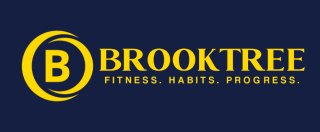
Undereating & Muscle Growth: Why Eating Enough Is Key to Building Muscle
Sep 11, 2024Muscle definition and building muscle mass are often viewed as interchangeable, but they actually require different approaches. If your goal is to build muscle mass and improve overall strength, it’s crucial to understand how under-eating can impact your results.
My name is Kurt, and as someone with over 25 years of experience in health, wellness, and lifestyle management, I’ve worked with countless individuals to optimize their fitness and well-being. I’ve seen firsthand how proper nutrition plays a critical role in performance and muscle growth. Today, I want to share insights into what happens when you don’t eat enough to support your muscle-building efforts.
What Happens When You Undereat?
Undereating can lead to an energy deficiency where your body lacks the calories needed to support basic functions, let alone muscle growth. You might be hitting the gym hard, lifting heavy weights, and pushing yourself, but without proper nutrition, your body simply can’t keep up with these demands.
Instead of building muscle, your body may begin to break it down to use as fuel. A study in the Journal of the International Society of Sports Nutrition highlights how inadequate caloric intake, particularly in protein, can lead to muscle protein breakdown. Your body prioritizes survival over muscle growth when it's deprived of sufficient calories.
The Role of Protein in Muscle Growth
Protein is essential for repairing and building muscle. During weight training, tiny tears occur in your muscle fibers, and protein provides the amino acids needed to repair these tears, which leads to stronger muscles.
Without adequate protein, even intense workouts won't lead to muscle growth. For example, if you’re eating only 1500 calories per day but your body requires 2500 just to maintain muscle, this 1000-calorie deficit can result in muscle loss. The American Journal of Clinical Nutrition emphasizes that maintaining adequate protein intake during intense training is key to preventing muscle breakdown.

Carbohydrates and Fats: Fueling Muscle Growth
While protein gets most of the attention, carbohydrates and fats are equally important for muscle growth. Carbohydrates serve as your body’s primary energy source, especially during high-intensity workouts. If you don’t consume enough carbs, your glycogen stores will deplete, leading to fatigue and poor performance in the gym.
Fats, particularly healthy fats, support hormone production, including testosterone, which is essential for muscle growth. Too little fat in your diet can lead to decreased hormone levels, hindering muscle gains.
The Myth of Building Muscle in a Caloric Deficit
One of the most common misconceptions is that you can build muscle while in a caloric deficit. In reality, building muscle requires a caloric surplus. Without enough energy, your body will prioritize vital functions over muscle growth. While body recomposition (losing fat while gaining muscle) is possible for beginners or those returning after a break, for most experienced lifters, it’s more effective to cycle between muscle-building phases (caloric surplus) and fat-loss phases (caloric deficit).
Signs of Undereating
If you're undereating, you may experience:
- Constant fatigue
- Stalled progress in muscle growth and strength
- Frequent illness due to a weakened immune system
- Mood swings or irritability
- Loss of menstrual cycle (for women)
- Difficulty concentrating
- Persistent muscle soreness and poor recovery
These signs indicate it’s time to reassess your nutrition and ensure you’re fueling your body with enough calories and nutrients.
Adjusting Your Diet for Muscle Growth
To build muscle, start by calculating your Total Daily Energy Expenditure (TDEE), which includes your Basal Metabolic Rate (BMR) and the calories burned through physical activity. Aim to eat slightly more than your TDEE to fuel muscle growth.
For instance, if your TDEE is 2500 calories, try increasing your intake by 5-10%, meaning around 2700 calories per day. Focus on nutrient-dense foods like lean proteins, complex carbs, and healthy fats. Consuming 20-40 grams of protein after exercise, followed by protein every 3-4 hours, will optimize muscle repair and growth.
Conclusion
Building muscle requires more than just intense workouts. Proper nutrition is vital to reaching your fitness goals. Without enough calories, protein, carbs, and fats, your body won’t have the resources needed to grow stronger and recover effectively.
If you’re ready to take your fitness journey to the next level, consider working with Brooktree Consulting. I offer personalized coaching, meal planning, and fitness programs tailored to your unique goals. Visit Brooktree Consulting to learn more or schedule a discovery call today! Let’s work together to achieve the results you’ve been working so hard for.
Mind, Body, Balance
Tailored for subscribers and potential clients, this newsletter offers fresh perspectives on nutrition, fitness, and holistic living. Discover practical tips, expert guidance, and stories of real change to inspire your path toward a healthier, more balanced life.
We hate SPAM. We will never sell your information, for any reason.


